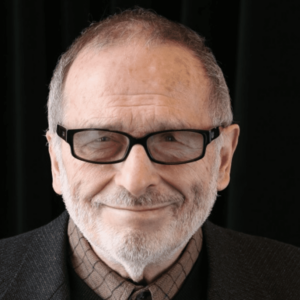According to Amy Maguire at the University of Newcastle in New South Wales, on Saturday, October 14, 2023 : “Australians were asked to vote on whether to establish an Aboriginal and Torres Strait Islander Voice to Parliament … as a means of recognising … the First Peoples of Australia in the Constitution.”
When this proposition was first advanced by Prime Minister Anthony Albanese’s new Labor government, opinion polls suggested that as much as two-thirds of the country was in favour. But opinion had changed by the October 14 referendum, after a tough campaign with the Liberal (read conservative) opposition aggressively opposing.
As of October 20, with 80% of the national vote counted, 61% had said NO and only 39% YES. And the progressive journalist Quentin Dempster moaned: “The 60-40 No majority on indigenous Recognition/Voice has branded Australia as a remnant racist British colony.”
The conservative businessman Robert Peake protested that Mr. Dempster’s reaction was “Wrong. On so many levels … Was just the wrong approach. Australians just don’t want a legislated advisory body representing a certain part of society enshrined in the constitution i.e. forever.”
Whatever else, the 61% NO vote on the Indigenous Voice does reflect a new conservative mood in Australia — about a year and five months after Anthony Albanese’s progressive Labor party won the last Australian federal election on May 21, 2022.
Whatever else again, some similar conservative mood haunts the latest 338Canada “Federal Model” of Canadian polling opinion. If a vote had been held on October 15, 2023, 338Canada suggests, Conservatives would have won 194 seats in the elected parliament at Ottawa (albeit with a mere 39% of the cross-Canada popular vote!), Liberals 90 seats, Bloc Québécois 32, New Democrats 20, and Green Party 2!
There are as well a few thought-provoking comparisons between the current polling conservatism in Canadian politics and the Australian conservatism that forged the 61% NO in the Indigenous Voice referendum.
One part of the “remnant racist British colony” critique of course involves racism. In a 2021 survey for the Australian Broadcasting Corporation “76 per cent of respondents agreed racial prejudice persists here.” And 46 per cent agreed that “white supremacy is ingrained in our society.”
In Canada we have never talked openly about anything quite like the White Australia Policy that governed immigration down under from 1901 to 1958. Canada nonetheless also had racially restrictive immigration policies in the first half of the 20th century.
Similarly, Canada may seem somewhat less racist than Australia on Indigenous issues, because the recognition of Canadian “aboriginal rights” in sections 25 and 35 of the Constitution Act, 1982 did not have to be approved in a popular referendum. (As do all amendments to the Australian Constitution.)
On a related channel, Australian writer Andrew Gardiner has complained that after October 14: “Unfairly or not, we’ve been lumped in with the UK (Brexit) and US (Trump) as countries prepared to shoot themselves in the reputational foot to hang on to what’s seen as a chequered past.”
And this raises the question: does the new conservatism in Canadian opinion polls reflect any parallel passion for “a chequered past” in Canada?
On another channel again, Australian psychiatrist Patrick McGorry — a passionate YES advocate in the referendum — has compared the winning conservative NO campaign in 2023 to a similar conservative campaign against a proposed constitutional amendment for an Australian republic in 1999.
As Mr. McGorry has urged: “Same architect and playbook as the Republic referendum. Betrays the original wishes of most Australians. In each case Australia’s growth as a nation has been delayed.”
It also seems possible that the strong NO vote against the Indigenous Voice may stall the Albanese Labor government’s parallel plans to revive the Australian republic issue and end the British monarchy down under in the 2020s.
If the new Australian conservative mood won’t buy an Indigenous Voice, it may once again reject a new Australian republic. Meanwhile, the Justin Trudeau Liberals have already been almost surprisingly conservative on the future of the monarchy in Canada.
Finally, in Manitoba on October 18, 2023 — four days after the “60-40 No majority” on an Indigenous Voice in Australia — the progressive New Democrat Wab Kinew was sworn in as the first First Nations premier of a Canadian province.
As Premier Kinew himself has urged, this reflects progress Canada has made in his and his father’s lifetime. It suggests as well that there remain at least some real differences between Indigenous issues in Canada and Australia in the 21st century.






